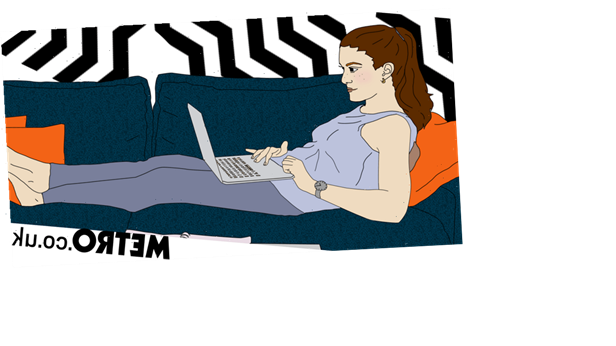While many people are struggling with coronavirus restrictions, it’s likely that those who consider themselves ‘introverts’ find the experience a lot less challenging.
That’s because introverted people are usually happiest and most energised when they’re at home in their own company – which is pretty much the bread and butter of lockdown life.
On the flipside, this means that extroverts, who typically feel most energised when they’re socialising with friends and family, have been forced to adapt to the solo nature of self-isolation.
As a result, they have found new ways of feeling connected and content.
But what will happen once restrictions are lifted?
Is it possible that the introverted lifestyle of lockdown will have a long-term impact on extroverts?
NLP master coach Rebecca Lockwood explains the different ways this could impact both types of people.
She tells Metro.co.uk: ‘Introverted people gain their energy by being alone and like to be alone to recoup and refresh.
‘If someone who is an introvert has been in lockdown with others they could be feeling exhausted, and coming out of lockdown and being able to make that alone time will feel like a break to them.’
But what about the extroverts?
‘So if someone who is an extrovert has been with other people during lockdown they will most likely feel energised and refreshed,’ Rebecca explains.
‘However, due to the length of time we have been in lockdown it could be that they are ready for some time alone and have expanded their energy too far.’
Chartered counselling psychologist Dr Rachel M Allan agrees that the isolating nature of lockdown is likely to have some kind of impact on our levels of introversion.
Dr Rachel tells Metro.co.uk: ‘Lockdown may have forced those who thrive on being in company to find alternative ways to get a sense of connectedness, and to feel “recharged”.
‘This could mean that some of those who identify as extroverts may now have a greater appreciation for activities usually associated more with introverts, such as the value of solitary pursuits and space for quiet reflection.
‘It might be that those who previously felt most at ease in company and around others may find they want to make space for more periods of solitude and reflection post-lockdown – if they have felt a benefit from this while in isolation.’
Essentially, extroverts might find that they are a a little more fluid going forward – particularly after placing value on their own company and thoughts in lockdown, rather than other people’s.
Dr Stephanie Cook, a lecturer in psychology at DMU, says that introversion and extroversion should be seen as more of a spectrum anyway – rather than totally separate things.
She tells Metro.co.uk: ‘Most people tend to find themselves somewhere around the middle of the spectrum – maybe slightly more to one side than the other – while very few people are at the extreme ends of the introversion/extroversion spectrum.’
But Dr Stephanie stresses that it’s important to remember that this can change, depending on external factors.
‘How introverted or extroverted we are is not fixed, and can change depending on our circumstances,’ she adds.
‘Humans are built to adapt to their surroundings, and it may be the case that people adapt to lockdown by becoming more introverted.
‘Certainly for those who are no longer working and spending lots more time alone, they may shift further towards the introverted end of the spectrum.’
Source: Read Full Article
